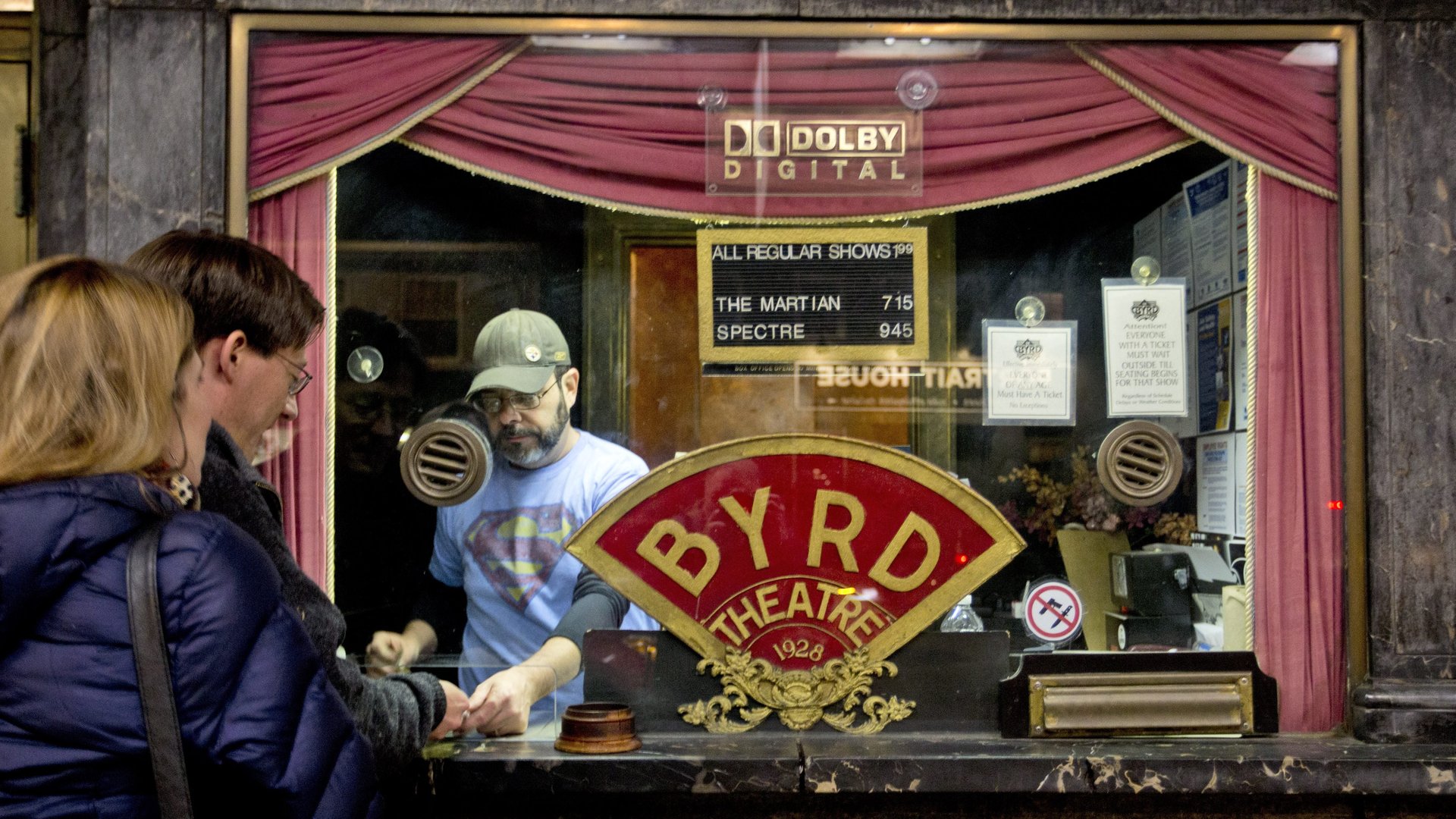A young film company is bringing the lost art of the short film back to cinema screens
Today, the minutes before a movie at the cinema are filled merely with mundane advertisements, trivial entertainment news, and more trailers for films you probably don’t want to see.


Today, the minutes before a movie at the cinema are filled merely with mundane advertisements, trivial entertainment news, and more trailers for films you probably don’t want to see.
But in the early days of cinema, movies were always accompanied by short films. Theaters would screen shorts—usually comedies, animated cartoons, serials, or newsreels—in the lead up to a feature film. The term “feature,” in fact, was coined to distinguish these longer films from the shorter ones—the full-length titles were the ones featured in advertising.
One fledgling film company, Neon, is bringing the old art of the short film back to theaters. The independent distributor, which launched at the Sundance Film Festival in January, started a short-film arm and plans to pair each of its full-length movies with a short, the company said in a statement this week.
It will start by premiering Peter Huang’s 5 Films About Technology alongside its first feature, Colossal, which opened in a limited release in the US yesterday.
Pixar is the only major movie studio that releases original shorts with its features today. The Disney-owned company started off with short computer animations and kept with the tradition. It has screened a Pixar-created short during the initial run of all of its feature films since 1998, when it paired A Bug’s Life with a short called Geri’s Game. It recently released a short on YouTube that’s set in the world of its upcoming animated feature, Coco.
The practice of screening short films before movies largely faded from cinema by the 1950s and 1960s, after double features—screening two movies for the price of one—became popular. Theater operators and movie studios used them to save money and lure customers. The screenings opened with a lower-budget “B” movie, followed by a brief interlude that sometimes included a newsreel or animated short, and concluded with the main feature-length film.
That trend, along with the more serious documentary shorts that were airing in Europe, largely brought an end to the medium in commercial cinemas. Short films moved to TV and, much later, YouTube. And, though the art form was snubbed commercially, it remained prevalent among among independent filmmakers.
Neon is young, but already attracting quite a bit of attention in the independent film community. It was started by movie veterans Tom Quinn, of The Weinstein Company’s RADiUS film studio, and Tim League, of the US indie cinema chain Alamo Drafthouse. It’s being billed as one of the next breakout distributors, up there with A24 (Moonlight, Spring Breakers) and Blumhouse (Get Out, The Witch).
Its first feature, Nacho Vigalondo’s bizarre movie Colossal, follows a party girl on the verge of a mental breakdown, played by Anne Hathaway, who returns to her hometown—and also seems to be in control of a giant monster wreaking havoc through Seoul.
The movie had strong reviews coming out of Sundance and the Toronto International Film Festival (TIFF), where it was picked up by Neon last year. 5 Films About Technology, the dark comedic short that will air before it, was also screened at Sundance and TIFF.